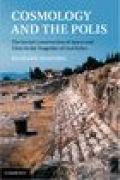
Cosmology and the polis: the social construction of space and time in the tragedies of aeschylus
Seaford, Richard
In the earliest drama the clash between the old world of ritual and the newworld of money is revealed. The Greek polis was the first society to be monetised and the first to produce drama. This pioneering book seeks to uncover therelationship between these two momentous inventions by examining the clash between the old world of ritual and the new world of money in the tragedies of Aeschylus. The Greek polis was the first society to be monetised and the first to produce drama. This pioneering book seeks to uncover the relationship between these two momentous inventions by examining the clash between the old worldof ritual and the new world of money in the tragedies of Aeschylus. This bookfurther develops Professor Seaford's innovative work on the study of ritual and money in the developing Greek polis. It employs the concept of the chronotope, which refers to the phenomenon whereby the spatial and temporal frameworksexplicit or implicit in a text have the same structure, and uncovers various such chronotopes in Homer, the Homeric Hymn to Demeter, Presocratic philosophyand in particular the tragedies of Aeschylus. Mikhail Bakhtin's pioneering use of the chronotope was in literary analysis. This study by contrast derives the variety of chronotopes manifest in Greek texts from the variety of sociallyintegrative practices in the developing polis - notably reciprocity, collective ritual and monetised exchange. In particular, the Oresteia of Aeschylus embodies the reassuring absorption of the new and threatening monetised chronotope into the traditional chronotope that arises from collective ritual with its aetiological myth. This argument includes the first ever demonstration of the profound affinities between Aeschylus and the (Presocratic) philosophy of his time. INDICE: Introduction; Part I. The Social Construction of Space, Time and Cosmology: 1. Homer: the reciprocal chronotope; 2. Demeter Hymn: the aetiological chronotope; 3. From reciprocity to money; Part II. Dionysiac Festivals: 4. Royal household and public festival; 5. Aetiological chronotope and dramatic mimesis; 6. Monetisation and tragedy; Part III. Limit and the Unlimited in Confrontational Space: 7. Telos and the unlimitedness of money; 8. Suppliants; 9. Septem; 10. Confrontational space in Oresteia; 11. The unlimited in Oresteia; 12. Persians; Part IV. The Unity of Opposites: 13. Form-parallelism and the unity of opposites; 14. Aeschylus and Herakleitos; 15. From the unity of opposites to their differentiation; Part V. Cosmology of the Integrated Polis: 16. Metaphysics and the polis in Pythagoreanism; 17. Pythagoreanism in Aeschylus; 18. Household, cosmos and polis; Appendix: was there a skēnē for all the extant plays of Aeschylus?
- ISBN: 978-1-107-00927-1
- Editorial: Cambridge University
- Encuadernacion: Cartoné
- Páginas: 380
- Fecha Publicación: 12/01/2012
- Nº Volúmenes: 1
- Idioma: Inglés
